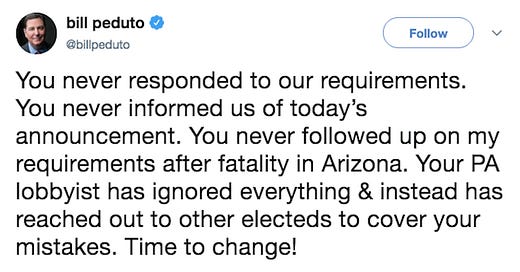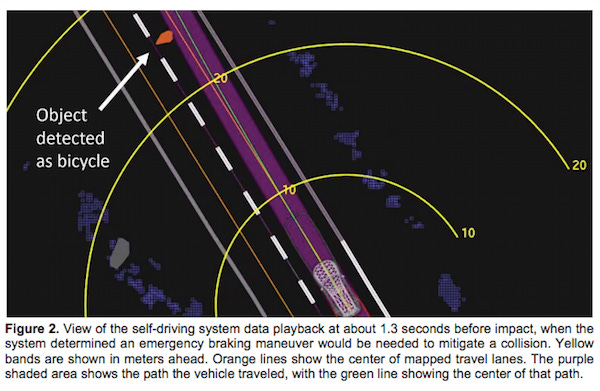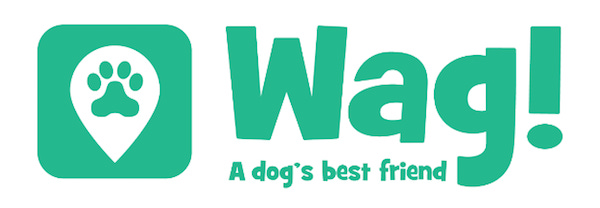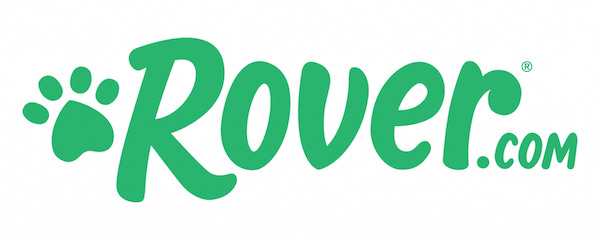Social media reports.
We talked last week about how Pittsburgh mayor Bill Peduto was taken aback by Uber's stated desire to resume testing its driverless cars in the Steel City this summer. "Uber did not tell me of today's announcement, and I was forced to learn about it through social media reports," said Peduto, who was traveling in Europe (Italy?) at the time. This is not the way to rebuild a constructive working relationship with local government, especially when facing a public safety matter." Peduto's chief of staff, Dan Gilman, had similar things to say in an interview with CBS Pittsburgh. "He was shocked," Gilman said. "He doesn't know because he hasn't checked Twitter? That's not how a mayor should learn about key operations in their city."
What we didn't talk about was the response from Uber, which contested Peduto's claims, obviously, on Twitter. "…at every step we've proactively reached out to relevant officials at each level of government," Uber tweeted on May 23. "As recently as Friday, we met with @CityPGH to discuss in detail how we could work together to return safely to self-driving operations." The company also told reporters that it had "pre-briefed" the city on movements involving its vehicles on April 27, before telling the city, county, and state on May 9 and May 10 that it hoped to get self-driving cars back on the road by the end of June. Peduto was unimpressed.
After bowing out of Arizona, Uber could use a smooth restart in Pittsburgh. Unfortunately for Uber, there's some bad blood. Peduto became frustrated with Uber after he asked the company to invest time and money in helping it win the 2016 Smart City Challenge, a $50 million prize awarded by the US Department of Transportation. Uber not only refused, but turned around and asked Peduto for a bunch of special privileges for its driverless car program, including access to bus lanes, designated pick-up and drop-off spots, and "prioritization of snow removal" on self-driving car routes. "I would be voted out of office," Peduto retorted at the time. In early 2017, he declared Pittsburgh had "held up our end of the bargain" but hadn't "seen much from Uber."
Then of course there's the matter of the pedestrian whom Uber's car struck and killed in March in Tempe, Arizona. According to preliminary findings released May 24 by the National Transportation Safety Board, Uber's car first detected the pedestrian that night about 6 seconds before impact, while traveling at 43 miles per hour. It classified the pedestrian first as an unknown object, then as a vehicle, and then as a bicycle. At 1.3 seconds before impact, the driverless car decided it needed emergency braking to avoid a collision. But: "according to Uber, emergency braking maneuvers are not enabled while the vehicle is under computer control, to reduce the potential for erratic vehicle behavior. The vehicle operator is relied on to intervene and take action. The system is not designed to alert the operator."
Yes you read that right. Uber had disabled the emergency braking system in its self-driving car, meaning that when the car needed to apply those brakes suddenly, it was unable to do so, according to the NTSB report. It also had 6 seconds to evaluate the situation, in which it mistakenly classified Elaine Herzberg as three different non-human entities. Uber wouldn't comment directly on the NTSB findings to Reuters, saying instead it had initiated an internal safety review of its self-driving vehicles and would announce changes in the coming weeks. In the meantime, who knows whether Uber and Pittsburgh will ever, ever, ever get back together.
Salt Lake City.
Military vet Aaron Johnson had been driving for Uber for three years in Salt Lake City until an incident with Uber's support staff earlier this year. In late January, Johnson, 53, visited one of Uber's "Greenlight Hub" driver support centers in hopes of sorting out a rider complaint that he had rolled his eyes. While there, Johnson claims, an Uber support rep became irate, asked him to leave, and when Johnson attempted to take a picture of the man, seized his wrist and wrested away his mobile phone.
After he reported the incident to Uber, the company ultimately offered to pay him $400 if he signed a contract releasing Uber from all claims and agreeing to keep both the settlement and initial incident confidential. Johnson refused to sign; instead he got in touch with me. He alleges Uber's support rep assaulted him; the police report on the incident found it didn't meet the elements needed for an assault charge. You can click here to hear audio we obtained of the call where an Uber rep named Lola offers Johnson $400 "given the inconvenience and poor experience caused by the incident."
While disputes occur periodically between Uber's riders and drivers, a physical altercation between a driver and Uber employee is rare if not unheard of. Uber operates a diffuse network of about 200 Greenlight service centers in the US to support the roughly 900,000 drivers it had as of May. These centers are staffed by Uber employees and offer in-person support on issues ranging from rider complaints to local licensing requirements. For many drivers, a Greenlight Hub is likely the only place they will interact with an Uber employee.
Uber has worked hard to court military vets like Johnson, who also receives disability compensation from the Department of Veteran Affairs for a service-connected injury. Like many drivers, Johnson had his complaints about Uber—he didn't like Kalanick and the pay was low—but was optimistic things would improve under Khosrowshahi. His experience at the Greenlight Hub made him doubt that much had changed. "They've made such a big deal about veterans and cleaning up their image," he said. "I'm in that demographic. And their response to me was, you don't matter, sorry."
Books!
My talented colleague Sarah Kessler has written one, Gigged, about the gig economy. In the tradition of great business books like Nickel and Dimed, Sarah follows five stories of how freelance gigs are transforming people, cities, and towns across the US. It goes on sale June 12 and in the meantime you can pre-order it here on Amazon. Sarah will be doing a launch event at—where else?—a WeWork on June 12 in Washington DC. There are drinks first; it will be a good time. Sign up for that here.
Facebook's new gig.
Facebook is getting into the gig economy, because, like, why not? The social networking company is adding a home-services feature to Marketplace, that messier-than-Craigslist portion of the site where people sell everything from shoes (free) to homes ($299,900) to used custom lace wigs (also free). Facebook has reportedly partnered with cleaning companies Handy, HomeAdvisor, and Porch to bring home services like housing cleaning and plumbing to Marketplace in the US.
Home services is an interesting category because, in theory, it's one of the purer manifestations of the gig economy. People who drive for Uber or deliver food for Postmates are considered contractors but they only have so much control over their work. They can choose their hours, yes, but they don't set their hourly rates or have much choice over which job they'll do next. Uber has fondly referred to its drivers as entrepreneurs and independent business owners, but they aren't anything like the independent contractors you would traditionally find through the yellow pages, who would negotiate on everything from timing to price for a job.
The gig handyman platforms tend to be different. Service providers on platforms like TaskRabbit, Thumbtack, and HomeAdvisor pick the types of jobs they want to do and set rates or bid on customer requests. Some of them can opt in to on-demand automatic dispatches that are closer to an Uber or Lyft, but on the whole these contractors still bear more similarities to the person you would hire from a phonebook. The main difference is that those yellow pages have now moved online.
In a lot of ways, this makes sense. Uber is essentially a fancy automated taxi dispatch system, and making that work requires only one kind of labor: drivers. Driving, in turn, is a unique skill in that most people who can do it have received some sort of standardized training and license from the government. That means the company that hires them (Uber, Lyft, etc.) doesn't need to do any additional training; it can just put them to work. It also means that those workers are highly replaceable; when it comes to ferrying passengers around, one person with a car and a driver's license is pretty much as good as another.
Handyman services aren't like that. There are a lot of different skills involved; they are skills not everyone has; and service quality matters. Someone who can fix your toilet might not know how to aerate your lawn. Among a group of plumbers, one might be clearly better at their work than another. Even if Uber drivers could set their own rates, most people probably wouldn't be willing to pay a premium for a five-star driver when a four-star driver would do just as well. But they might pay a premium for well-reviewed movers who are transporting all their earthly possessions from one home to another.
The newest unicorn…
…is a dog. A Place for Rover Inc., better known as Rover, is raising $125 million in equity funding plus $30 million in debt, per the Wall Street Journal. The new funding values it at $970 million, or just shy of unicorn status. Rover's funding comes a few months after competitor Wag raised more than $300 million led by SoftBank.
Wag and Rover are two of the companies competing to win the informal dog-walking and daycare business, which, apparently, a lot of people are into. "Underlining the competition," notes the Journal, "the two companies have nearly identical four-toed green paw print logos." Let's take a look:
Other stuff.
Lyft pledges $100 million for new driver support centers. Uber plans flying car lab in Paris. Dara Khosrowshahi goes on European charm offensive. Electric Scooter Charger Culture Is Out of Control. Supreme Court rules companies can require workers to settle disputes through individual arbitration. Wine subscription service Bright Cellars raises $2.8 million. Albert raises $5 million for on-demand personal finance advisers. Woman in West Hollywood alleges sexual assault by Uber driver. Uber driver in Atlanta arrested on outstanding rape warrant. New Orleans halts short-term rentals. Scoobi deploys 100 electric scooters in Pittsburgh. Uber still knows how to lose money. Uber buys OrderTalk for restaurant software. Uber's Amit Jain named head of Asia Pacific. Singapore cab company ComfortDelGro backs out of deal with Uber. Grab launches food delivery. Uber Hong Kong offers "goodwill payment" to family of dead driver. Uber adds 911 calling aid. Postmates drops ageist ad. Airbnb adds stories. Company calling itself Goat launches electric scooters in Austin. Autonomous boats. Live Like Zelda and F. Scott Fitzgerald by Staying in Their Home.







